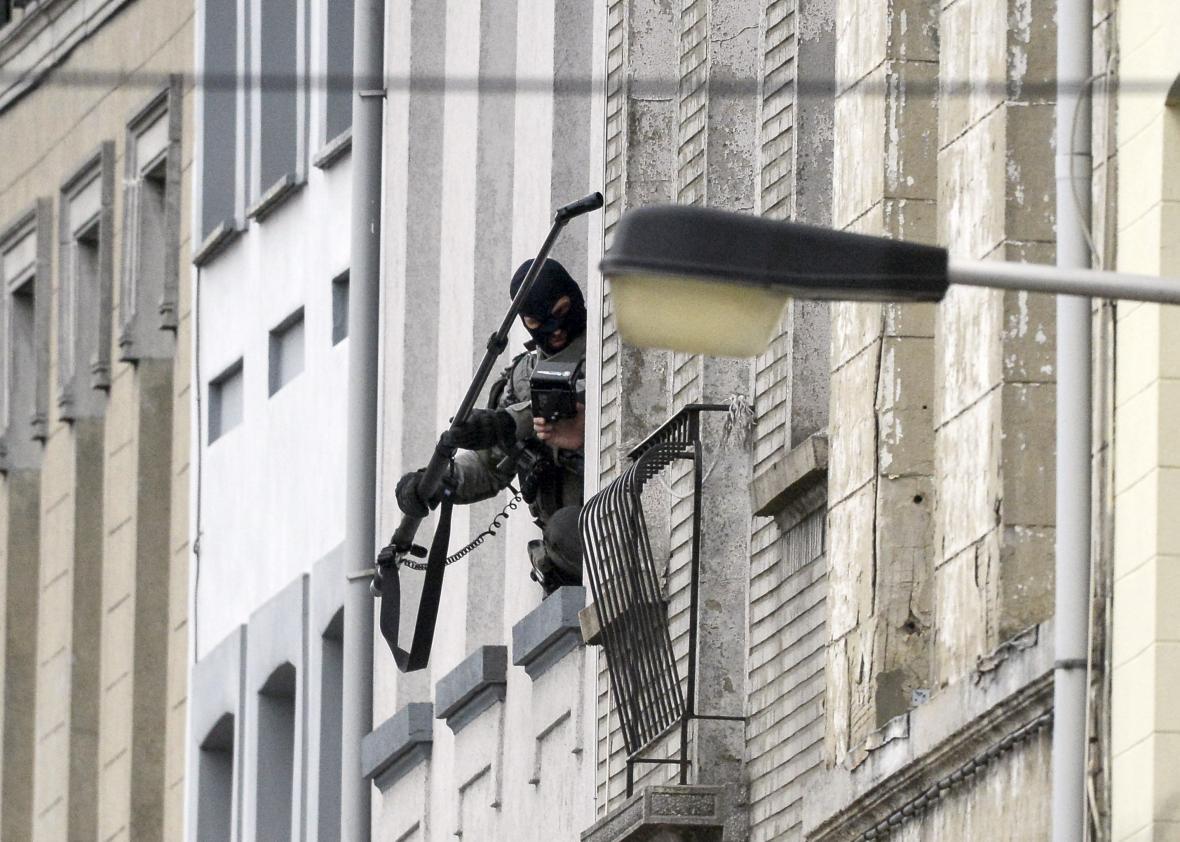The news that Belgian extremist Abdelhamid Abaaoud is believed to be the mastermind of last week’s Paris attack and that several members of the sleeper cell that likely carried out the massacre spent time in the Brussels’ suburb of Molenbeek has refocused attention on Belgium’s unlikely role as a hotbed of jihadi violence.
Belgian police carried out raids in the immigrant neighborhood, which has been linked to several recent terrorist attacks, on Monday morning.
Ayoub El Khazzani, the Moroccan immigrant behind the attempted attack on a high-speed train to Paris in August, had also spent time in Molenbeek and is believed to have had contact with Abaaoud. The weapons used in the Charlie Hebdo attacks in January were also obtained in Belgium, and police broke up a cell in the eastern town of Verviers, believed to be planning an imminent major attack, back in January.
According to Belgian blogger and terrorist tracker Pieter Van Ostaeyen, at least 516 Belgians had traveled to Syria, as Abaaoud did, to fight in the country’s civil war as of October, by far the largest per capita contribution of any European country. At least 112 of those are affiliated with ISIS.
As I wrote back in January, experts attribute the growing strain of radicalism in Belgium with the country’s failure to integrate its Muslim population—about 6 percent of Belgians—many of whom live in rough urban neighborhoods like Molenbeek. According to Belgian Interior minister Jan Jambon, many of those recruited to fight in Syria are third- or fourth-generation immigrants.
These circumstances aren’t unique to Belgium. What is unique is the presence of Fouad Belkacem and his Molenbeek-based organization, Sharia4Belgium. As I wrote in January:
Founded in Antwerp, the group first gained attention by staging events to celebrate the Sept. 11 attacks and increased in popularity after the veil ban went into effect in 2009. In 2012, Belkacem called for attacks on non-Muslims after a woman was arrested for wearing a face veil. The group has also been accused of making threats to public officials.
The highly effective group shifted its focus in recent years from promoting Islamic law in Belgium to recruiting for the war in Syria. According to Ostaeyen’s numbers, at least 15 percent of the Belgian fighters in the conflict have been in some way affiliated with the group, including, reportedly, some of the fighters who guarded U.S. journalist James Foley before his execution. Belkacem was sentenced to 12 years in prison, and 44 other Sharia4Belgium members were convicted for recruitment activities in February in one of the largest terrorism trials ever held in Europe, but many of the networks they built likely remain.
Compounding the growing problem of radicalism in Belgium is the availability of illegal weapons—arms dealers in Brussels are believed to have provided the AK-47s used in the Charlie Hebdo attack, the Kosher supermarket hostage killing the next day, and the August train attack. Belgium is a major legal producer of firearms, but the weapons used in these attacks are probably surplus from the Balkan wars of the 1990s and likely made their way from Eastern Europe. Kalashnikovs can reportedly be purchased for a little more than $1,000 in Belgium.
Jambon conceded on Sunday that authorities “don’t have a grip on the situation in Molenbeek.” It’s becoming increasingly that the danger posed by Belgium’s volatile mix of underlying resentment, an effective jihadi network, and relatively accessible heavy weaponry isn’t just limited to Belgium.
